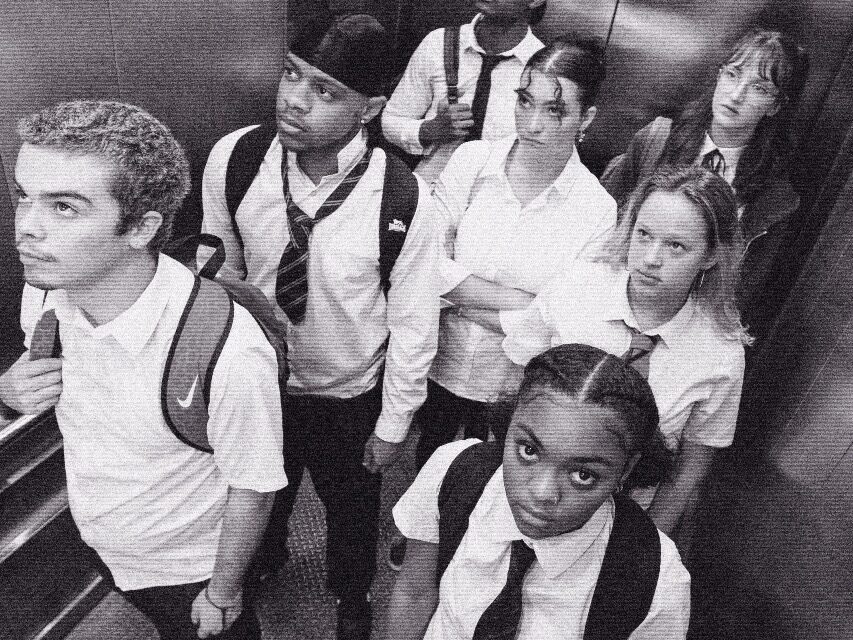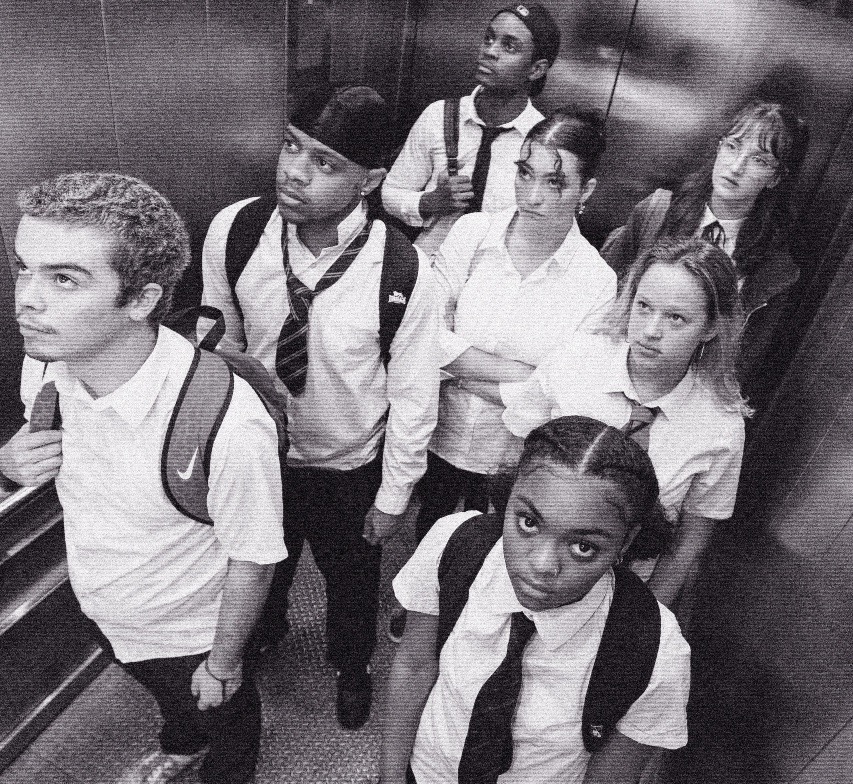
Set in a re-education centre a few hundred metres below the earth, There’s Nobody Else In The World and The World Was Made For Me is the powerful new show from Bristol Old Vic’s Young Company. The play has a 14-strong cast of 14 – 20 year old Young Company members and their drama explores how power and punishment impact on the mental health of young people. StageTalk met Harry Gould, Director, to chat about the play’s creation.
StageTalk: How did you first become involved with this project?
HG: I’m originally from Bristol, but I didn’t get involved with Bristol Old Vic Young Company until 2019, when I joined as a participant in the 16-25 group. I really wanted to be a part of their ‘Made In Bristol’ scheme, which I joined in the first year of the Covid pandemic. I was then in London at LAMDA on the Directing MA course before I was invited to come back to work on what became There’s Nobody Else In The World.
StageTalk: It’s a piece written and devised by the company. How did you set about that?
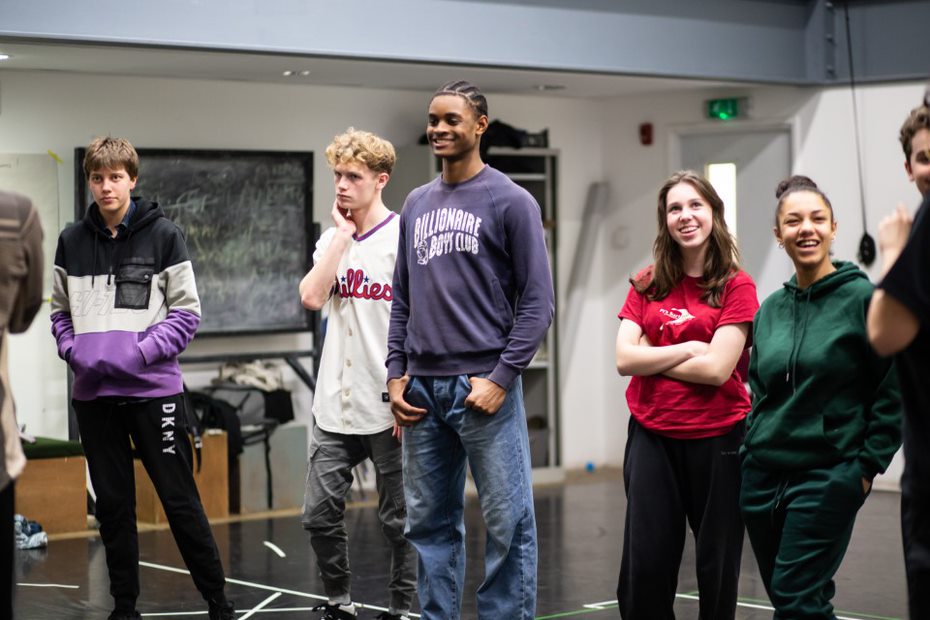
HG: It’s challenging, because there are quite a lot of us in the group, and everyone has complete ownership of the project, with the freedom to create whatever we want. In order to channel all that creativity, before rehearsals began Imogen Downes (Assistant Director) and I set down some parameters. Those included the themes, which are the relationship between punishment and power, and how that relationship impacts upon mental health. We also decided upon some key events, or ‘beats’ in the story that would guide the narrative to some extent. One of the main ideas was to set the action in an isolated environment.
StageTalk: Why did you choose mental health as a key theme?
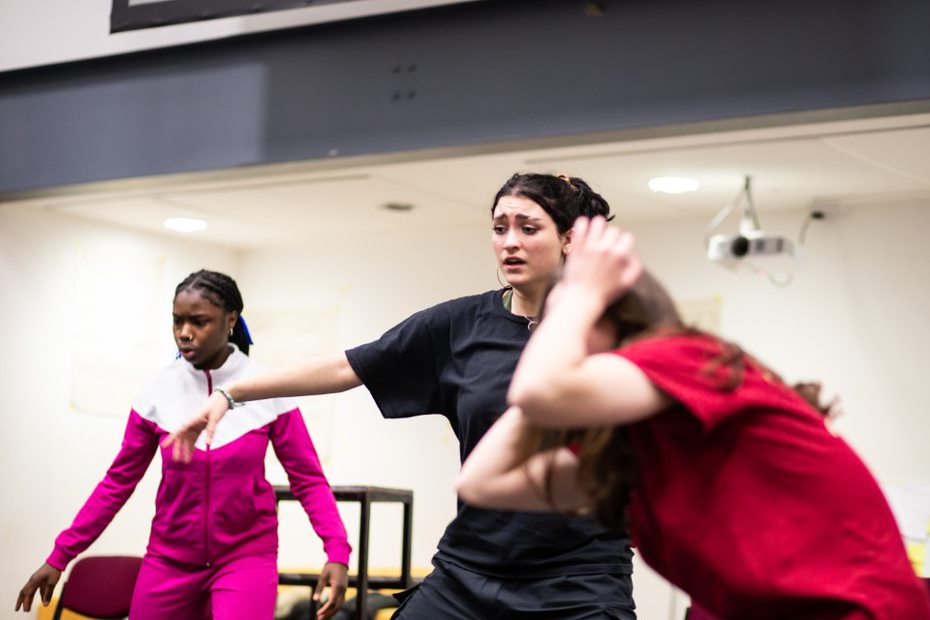
HG: I’ve been working with young people for about ten years, and mental health is a topic that has been fed back a great deal. It’s clear to me that during the pandemic young people of school age, whilst also being isolated, had a very different experience from adults. I was talking to the group and a fifteen-year-old told me of those challenges and how they fed into the ones she was faced when she returned to school. I heard that at school she had been sent to an isolation room where she had to sit in silence for over an hour, where she wasn’t even allowed to do her schoolwork. To use punishment in that way seemed a step in the wrong direction. Isolation, both in the pandemic and at school was clearly an important factor in the stress she was experiencing. These issues are not talked about enough and can be quite difficult to address.
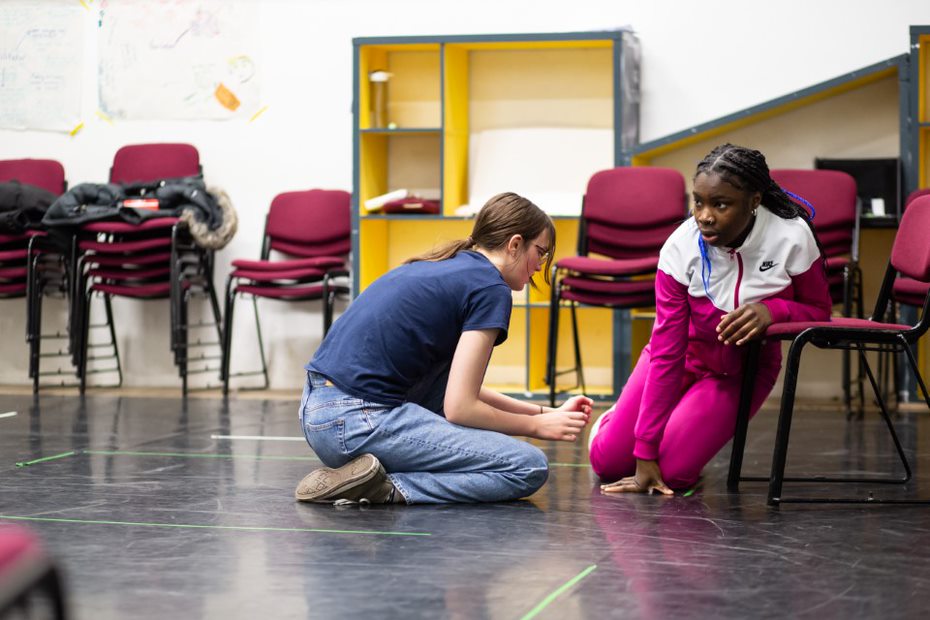
Loneliness is clearly an important factor, and social media, too, plays a part.
StageTalk: That’s surely ironic, if the use of social media is contributing to the loneliness experienced by young people?
HG: Yes it’s definitely a double-edged sword and so when young people are already experiencing considerable stress, I feel that these issues of punishment and discipline need to be addressed. For example, parents can now be notified instantly on an app when a child at school has transgressed some rule. From the young person’s perspective there seems to be no differentiation between school life and home life. It’s relentless pressure. They need a ‘third space’ that offers some freedom of expression. I think that taking part in a project such as this gives them that space.
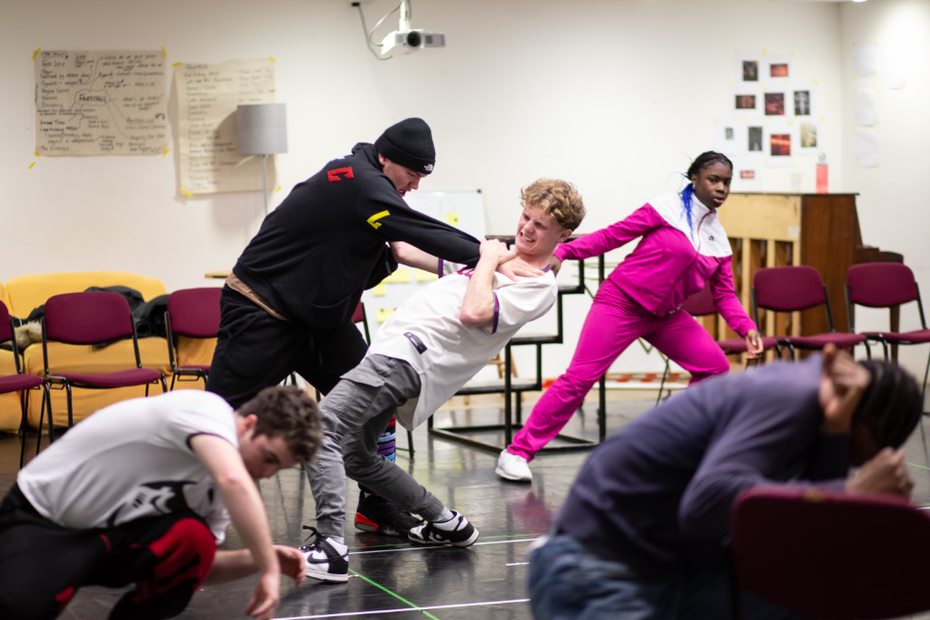
Stagetalk: There’s Nobody Else In The World is clearly a dystopian play. Where do you find room for optimism?
HG: Well, I’ve found that creating this work over two-and-a-half months with these fourteen young people has been truly inspiring. It has given them an opportunity to explore these issues confidently, openly, and collaboratively. Everyone has contributed, bringing their background, their experiences and their own creativity to the process. If they can continue in that way, there’s certainly room for optimism. It’s been wonderful to see.
Mike Whitton, 7th January 2023
Photo credit: Chelsey Cliff

